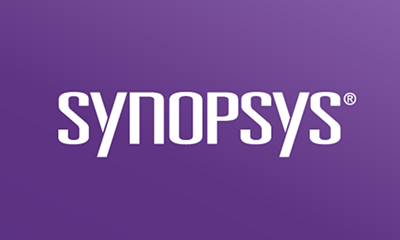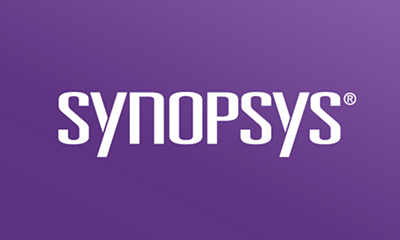AI and ML provide many benefits to modern organizations; however, with their widespread use come significant security challenges. This article explores the vital role of AI/ML security assessments in unearthing potential vulnerabilities, from lax data protection measures to weak access controls and more. The benefits of such assessments are diverse, including proactive risk management, regulatory compliance assurance, and continuous security improvement.
In an era of headline-grabbing breakthrough technologies, artificial intelligence and machine learning have quickly moved from novelty to necessity. They drive decision-making processes, automate routine tasks, and power innovation across industries. But the integration of AI/ML into critical business functions is not without its risks.
Consider the example of a healthcare provider that implemented an AI system to analyze patient data and recommend treatments. But due to inadequate data protection measures, a rogue actor was able to exploit vulnerabilities in the system and corrupt the model, causing misdiagnosis and putting patients at risk. Or the case of a leading financial institution that used ML algorithms for real-time fraud detection, and a lack of robust access controls allowed a breach in their AI/ML system, leading to financial losses. Finally, OpenAI, the company behind the AI hysteria–driving app ChatGPT, admitted that its own system had been hacked and the private information of more than 100,000 accounts had been breached. OpenAI put out a statement saying
While we have no information suggesting that any specific actor is targeting ChatGPT example instances, we have observed this vulnerability being actively exploited in the wild. When attackers attempt mass-identification and mass-exploitation of vulnerable services, everything is in scope, including any deployed ChatGPT plugins that utilize this outdated version of MinIO.
Such examples underscore the crucial need for robust security measures in AI/ML implementations. An AI/ML security assessment can play a vital role in this process, offering a thorough evaluation of an organization's AI/ML systems, infrastructure, and processes, with the aim of strengthening their overall security posture.
Common AI/ML security risks uncovered by assessments
AI/ML security assessments can unveil a wide array of potential vulnerabilities, which can be broadly grouped into several categories.
Data protection and access control: Issues in this category often revolve around inadequate data protection measures, insecure data storage and transmission methods, and insufficient access controls for AI/ML systems. Additionally, over-privileged user accounts in AI/ML environments may pose a considerable risk.
System infrastructure and component management: This category includes insecure integration of third-party AI/ML components, use of outdated or vulnerable AI/ML libraries and tools, and misconfigurations in AI/ML infrastructure, including cloud platforms. Weak or nonexistent AI/ML security testing processes and over-reliance on default security configurations for AI/ML tools can further expose systems to potential threats.
AI/ML model management: Insecure model training and validation processes, and inadequate AI/ML model version control and management can lead to significant risks in this category. Moreover, the lack of transparency and explainability in AI/ML models, as well as insufficient model life cycle management and retirement processes, can compound these .
AI/ML model robustness and security: AI robustness refers to a model’s ability to resist being fooled, and data poisoning refers to the potential for training data to be corrupted. Taken together, these underscore the importance of performing assessments against the model itself to understand its limitations, ways to exploit it, and how to protect it.
Design flaws and single-point failures: Discovering defects in AI/ML models is a common problem. Poor performance in ML and AI models is usually caused by inadequate or insufficient input data, an incorrectly trained neural network that cannot produce accurate results for given inputs, or bugs in the code used to train it. Additionally, the architecture surrounding the model needs to be adequately evaluated to ensure that it won’t be the source of potential failures.
Policy, governance, and compliance: This encompasses the lack of AI/ML-specific security policies and procedures, the absence of an AI/ML governance structure, and noncompliance with data privacy regulations. Moreover, no AI/ML-specific risk assessment and management processes and inadequate AI/ML supply chain security measures can put the organization at risk of regulatory penalties.
Monitoring, incident response, and recovery: Inadequate monitoring and auditing of AI/ML systems, poor incident response and recovery plans for AI/ML-related incidents, and ineffective AI/ML model monitoring and performance-tracking can severely hinder an organization's ability to respond to and recover from security incidents.
Training, documentation, and transparency: This group includes insufficient AI/ML security training and awareness programs, inadequate documentation of AI/ML systems and processes, and poor AI/ML patch management and vulnerability remediation practices. These issues can lead to gaps in understanding and mitigating potential threats to the organization's AI/ML systems.
The goal an assessment is not just to expose these weaknesses but also to provide actionable solutions to fortify your AI/ML infrastructure holistically.
Tangible benefits of AI/ML security assessments
Engaging in an AI/ML security assessment offers several key benefits to your organization, most
- Proactive risk management: Potential vulnerabilities in AI/ML systems are identified before they can be exploited.
- Regulatory compliance assurance: Such assessments ensure that AI/ML systems comply with all relevant regulations.
- Enhanced trust and reputation: Demonstrating a robust AI/ML security posture promotes trust among customers, partners, and stakeholders.
- Cost-effective security investments: The identification and prioritization of AI/ML security needs ensures targeted and cost-effective investments.
- Tailored recommendations: Assessments are tailored to specific needs, industries, and use cases.
- Continuous security improvement: Assessments establish a foundation for ongoing security monitoring and improvement.
- Competitive advantage: Prioritizing AI/ML security can position your organization as an industry leader.
- Improved ML ops processes: The assessments include evaluations of ML ops processes and recommendations to optimize them, ensuring that AI/ML systems are secure and efficient throughout their life cycle.
- Peace of mind: Working with trusted experts gives you the confidence that you’ve done everything possible to prepare for the unknown, going well beyond the capabilities available in-house.
The Synopsys AI/ML security assessment
To truly secure these benefits, it's essential to choose a trusted partner for your AI/ML security assessment, and this is where Synopsys comes in. Synopsys Software Integrity Group, a global leader in application security testing and security consulting, offers a comprehensive AI/ML security assessment (AIA) performed by a team of certified security professionals with extensive knowledge across all major security platforms, tools, and processes.
Synopsys AIA incorporates Adversa's industry-leading AI/ML security analysis platform to thoroughly scan models and systems to detect vulnerabilities. It also provides an in-depth evaluation for recognized methodologies, including the NIST AI Risk Management Framework and Playbook, to deliver a complete picture of your AI/ML landscape. The outcome of the AIA is a comprehensive report that provides a detailed analysis of high-level observations and associated risks. More importantly, the report furnishes initiatives to enhance the maturity level of your AI/ML systems. These initiatives are further broken down into actionable recommendations, making it easier for organizations to implement security improvements in a systematic and efficient manner.
Leveraging Synopsys AI/ML security assessments helps organizations navigate the complex landscape of AI/ML security with greater confidence. By identifying and rectifying potential vulnerabilities, you can secure your AI/ML systems, protect your valuable data, and ensure a safer, more resilient organization in the face of growing cyberthreats.








